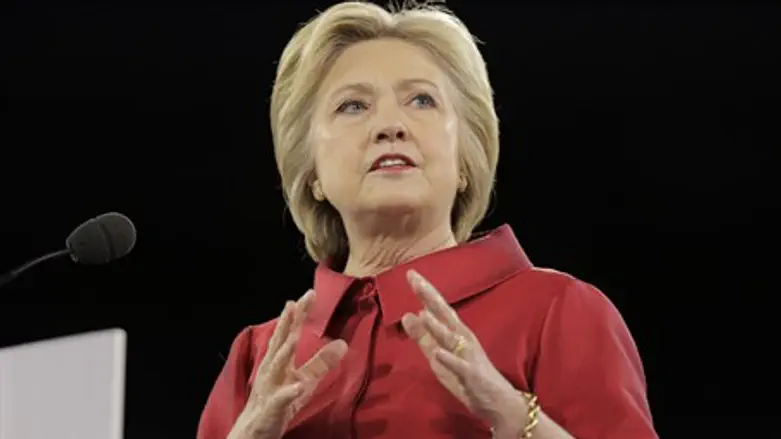
WASHINGTON (JTA) -- On the eve of a bid to have her church divest from companies allegedly profiting from Israel’s control of the West Bank, Hillary Clinton reasserted that the Boycott, Divestment and Sanctions movement was counterproductive to peace.
Clinton, the front-runner for the Democratic presidential nomination, responded on Sunday to an appeal from the Israel Action Network, an affiliate of the Jewish Federations of North America, ahead of the quadrennial United Methodist Church General Conference starting Tuesday in Portland, Oregon.
In a two-page reply Clinton, who was raised and remains a practicing Methodist, does not directly mention the church, although it is the focal point of the letter to her from the Israel Action Network.
But she says: “I believe that BDS seeks to punish Israel and dictate how the Israelis and Palestinians should resolve the core issues of their conflict.”
The position is not new for Clinton; she rejected BDS most recently in a March speech to the American Israel Public Affairs Committee.
Clinton says her support for Israel dates back to the early 1980s, when she first visited the country as first lady with President Bill Clinton, and continued through her term as U.S. senator from New York from 2001 to 2009 and then as secretary of state in President Barack Obama’s first term.
“I know you agree that we need to make countering BDS a priority, and that we need to work together — across party lines and with a diverse array of voices — to reverse this trend with information and advocacy, and fight back against further attempts to isolate and delegitimize Israel,” Clinton's letter says.
“I stand ready to be your partner as we engage all people of good faith — regardless of their political persuasion or their views on policy specifics — in explaining why the BDS campaign is counterproductive to the pursuit of peace and harmful to Israelis and Palestinians alike,” the letter concludes.
Among more than a thousand proposals, the Methodists will consider four resolutions calling for divestment from three companies that pro-Palestinian activists have accused of working with Israeli security forces to sustain Israel’s West Bank settlement enterprise. They are Caterpillar, Hewlett-Packard and Motorola.
In January, the Methodists’ pension fund removed five Israeli banks from its investment portfolio, saying the investments were counter to its policies against investing in “high risk countries” and to remain committed to human rights.
BDS activists have scored a series of successes in recent years in advancing similar resolutions, most prominently the United Church of Christ in 2015 and the Presbyterian Church (USA) a year earlier.